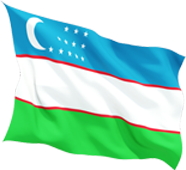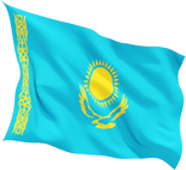The International Fund for Saving the Aral Sea (IFAS) – a unique interstate organization of Central Asia, in the year of its 30th anniversary is experiencing the process of reaching a higher effective level.
In many ways, a new impetus in the IFAS work was given by the initiatives of the President of Uzbekistan Shavkat Mirziyoyev in foreign policy, which prioritized cooperation with the countries of the region.
Among the most urgent tasks facing the countries of Central Asia is the consistent continuation of large-scale work to overcome the consequences of the Aral Sea crisis. First of all Uzbekistan is giving examples of active search and realization of concrete projects in this direction and attracts the international community to it.
At the initiative of Uzbekistan in 2018 under the auspices of the UN, the Multi-partner Trust Fund for Human Security for the Aral Sea region was established, which accumulates funds to improve the situation in the ecological disaster zone.
In the same year, the head of state signed a decree “On Establishment of the International Innovation Center of Priaralie under the President of the Republic of Uzbekistan”. The Center provides scientific and methodological guidance of all activities on forest plantations and restoration of biodiversity in the Aral Sea area.
To date, plants such as saxaul and tamarix have been planted on almost 1.7 million hectares of the dried Aral Sea bed. Today the work on greening the desert zones of the Aral Sea region is actively continuing.
Since the establishment of IFAS, the founder countries have also come a long way, the Fund’s branches on the field are consistently working in four key areas – water resources, energy, environment and socio-economic development. Projects within Action Programs on Assistance to the Aral Sea Basin Countries-3 (ASBP-3) have been implemented. At present, their realization within ASBP-4 continues.
Against the backdrop of the increasingly negative impacts of climate change in Central Asia, the role of IFAS is even stronger. Great expectations are placed on the Fund to solve one of the most sensitive problems in the region – rational use of water resources, which is the guarantor of food security and life activity. One of the most sensitive issues in the region is the rational use of water resources, which are a guarantee of food security and human life in general.
Today, IFAS can serve as a single platform for the countries of the region, where joint efforts can develop new mechanisms for on distribution of transboundary water resources, strengthen measures on introduction of modern water-saving technologies, installation of water accounting and monitoring systems, as well as search for ways to to introduce modern water-saving technologies, install water accounting and monitoring systems, and find ways for its efficient storage.
Proceeding from the realities, new challenges and requirements of ecological and socio-economic character based on the realities, new challenges and requirements of environmental and socio-economic nature, by the decision of the Fund’s founding countries, the issue of launching the process of improving the organizational structure and contractual-legal base of IFAS has been put on the agenda for a long time.
For the first time this topic was raised in the Joint Statement of the Heads of the Fund’s founding states on April 28, 2009 in Almaty. But only at the 13th IFAS Summit in August 2018 in Turkmenbashi, the Presidents of the founding countries expressed their readiness to launch this process.
For realization of this initiative by the decision of the IFAS Board dated January 30, 2018 a Regional Working Group (RWG) was established to improve the organizational structure and contractual-legal base of IFAS from among representatives of relevant ministries and departments of the founding states and structural subdivisions of the Fund and departments of the founding states and structural subdivisions of the Fund. Experts from Central Asian countries and international consultants were also involved in the RWG. Until now, 10 meetings of RWG have been held.
Although Kyrgyzstan suspended its participation in the IFAS in 2016, a constructive dialog with representatives of this country has now been established. Bishkek also participates in the work of the Working Group as an observer, entering into discussions on all agenda items.
It should be noted that the launch of a new format of multilateral dialog – Consultative Meetings of Heads of State of Central Asia – became a significant factor in activation of interaction within IFAS.
It is also symbolic that the next jubilee 5th Consultative Meeting of Heads of State is combined with the IFAS Summit, which once again demonstrates how much attention the leaders of the region’s countries pay to environmental problems and, in particular, to overcoming the consequences of the Aral Sea crisis.
It is expected that the results of the IFAS summit will allow building a completely new line of relations between the Fund’s founding countries and lay a strong foundation for improving the organization’s activity.
International partners who provide all possible support, as well as actively participate in the process of its improvement undoubtedly play a great role in IFAS activity. Among them, we can single out such authoritative organizations as the UN Economic Commission for Europe (UNECE), the German Society for International Cooperation (GIZ) and others.
IFAS has been an observer in the UN since 2008. Thanks to the efforts of all founding countries of the Fund, in 2018 the UN General Assembly resolution “Cooperation between the United Nations and the International Fund for Saving the Aral Sea” was adopted, and in 2021 the resolution declaring the Aral Sea region as a “zone of environmental innovation and technology” was unanimously approved. In May 2023, the resolution of the Economic and Social Commission for Asia and the Pacific (ESCAP) “Consideration of conditions for the establishment of a special UN program for the Aral Sea basin” was adopted.
These documents have given a significant impetus to further development and increase the effectiveness of the Organization. All founding countries today look with great optimism at the new prospects of IFAS, which, because of the improvement process, will strengthen its positions in all directions and will serve the environmental sustainability of Central Asia and the well-being of all peoples of the region.
Nozim Khasanov,
International Institute of Central Asia
Acting Head of Department












